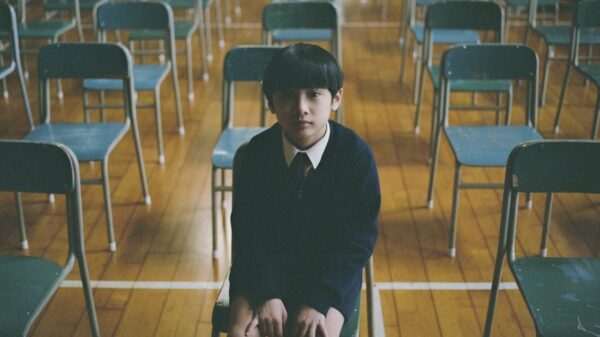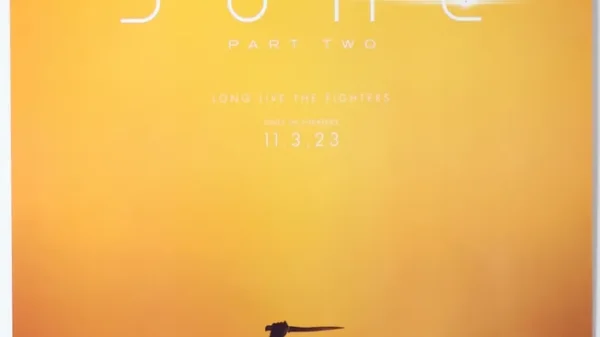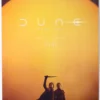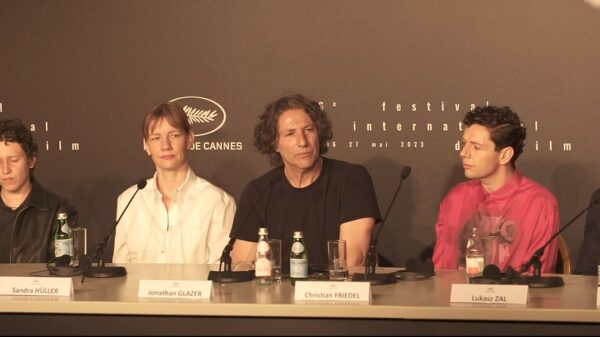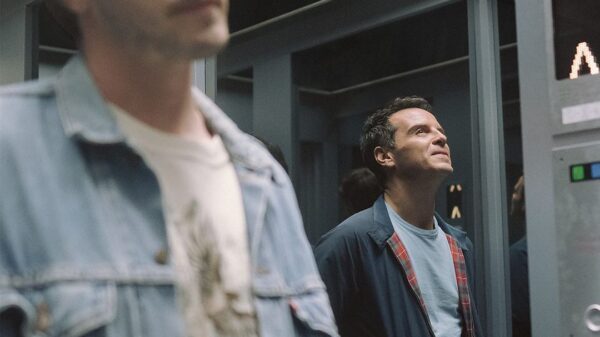Staff writer Leo Benham reviews Noah Baumbach’s latest film “White Noise”, which will be available on Netflix from 30 December onwards.
Noah Baumbach opened his latest project, “White Noise”, at the 2022 London Film Festival by saying something along the lines of: “This movie is a reflection of the current state of America”. This would be an accurate reflection of the film if he was making reference to its somewhat messy nature and lack of an end goal but, somehow, I don’t think that was what he was implying.
“White Noise”, adapted from Don DeLillo’s 1985 novel of the same name, looks at Jack Gladney, a college professor studying Adolf Hitler, alongside his mishmash family living in post-modern 1980s suburbia. Their fantasy-like journey through the struggles of a so-called “Airborne Toxic Event” strikes a deep resemblance to the COVID-19 pandemic. Baumbach regulars, Greta Gerwig and a nearly unrecognisable Adam Driver, take the film’s lead roles, with Don Cheadle, André 3000, and Jodie Turner-Smith all making appearances too.
Breaking the mould of his previous works in which thirty-somethings are troubled by conflicting New York and Los Angeles personalities, Baumbach takes an ambitious, yet overwhelming step to the big-budget Netflix movie that struggles to compliment his style. While his artistic flourish shines through, reflecting all sorts of colour and glamour, particularly in the closing/credit sequence (complimented by a brilliant original song from LCD Soundsystem’s James Murphy), something just doesn’t seem to add up alongside the car crashes and apocalyptic VFX clouds that overshadow the skies in the second chapter.
What ensues is a bombardment of satirical and ironically dark political commentary on American life, suggestions on the current state of panic, and a wacky exploration of a couple’s rollercoaster marriage, which ends up being a silly but fun trip. Yet, the film leaves little to be admired after the credits hit.
What had seemed so direct and enjoyably simplistic in Baumbach’s other works (“Marriage Story” and “Frances Ha”, among others) is abandoned by the vision of modern cinema that he attempts to employ here. While it is refreshing to see a director who has a history of repetitive narrative and thematic filmmaking change their habits, “White Noise” seems like a step back rather than a step forward in his progression as a filmmaker. The third act, most notably, highlights the clash of action, murder mystery, sci-fi, and investigative drama, avoiding the gelling process that the film so desires, and inevitably falls short of the tightness that was so dominant in Baumbach’s past catalogue.
Working with the source material of someone as complex and radical as novelist Don DeLillo makes for a series of dense and coded dialogue; a pleasantly exhausting script coated in metaphors for contemporary culture (albeit, these contemporary references conflict with the film’s attempt at timelessness).
While many may enjoy the chaotic nature of Baumbach’s latest, it comes across as trying to cover too much for its own good, modernising a 1980s story when modernisation is not needed.











